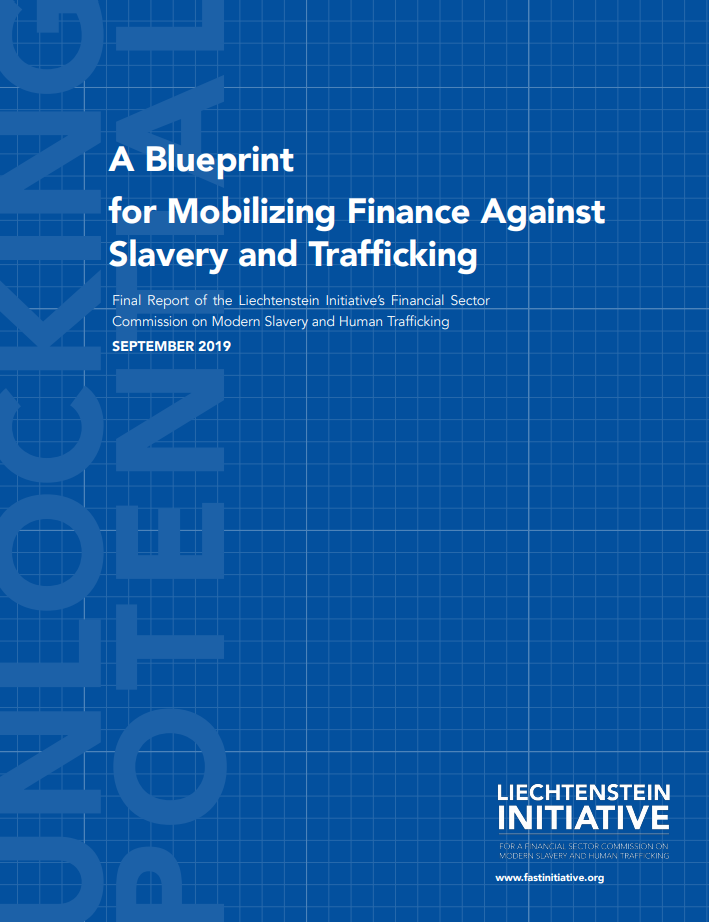Unlocking Potential: A Blueprint for Mobilizing Finance Against Slavery and Trafficking is the final report of the Liechtenstein Initiative for a Financial Sector Commission on Modern Slavery and Human Trafficking, which has now formed Finance Against Slavery and Trafficking (FAST).
The Blueprint provides a shared collective-action framework that different financial sector actors can implement in their own ways and at their own speeds.
The FAST Goals provides a framework for the whole financial sector and professional service providers to demonstrate their commitment to accelerating action to end modern slavery and human trafficking. The FAST Implementation Toolkit, comprising practical tools and initiatives, including workflows and diagnostic tools, will help financial sector actors in implementing the Blueprint.

